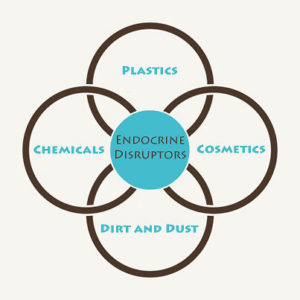Woah! It’s time for some serious cleaning. Yes, the heading of the article says it all, that there is a possibility that weight gain is caused by household dust but how does this happen? And is it really true?
It is obvious that you need to keep your house clean. But what’s the better method of cleaning? Senior author Heather Stapleton tells Seeker that wet wiping and mopping is better than dry dusting, since the latter can actually increase your dust exposure. “We also recommend washing your hands frequently, particularly before you eat, to further reduce exposures to these chemicals.”
Products like pesticides, plastics, paint, furniture, electronics, meat, Soy & other foods, water, soil etc contain chemicals like dioxins, perfluorinated chemicals, phthalates and more which are endocrine disruptors. In the long run, though, it will probably take manufacturers removing EDCs from their products to really make a difference. You can also help through your choices at the store.
Reference: Curiosity.com




0 Comments